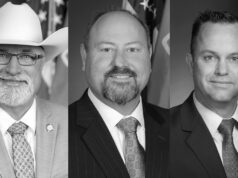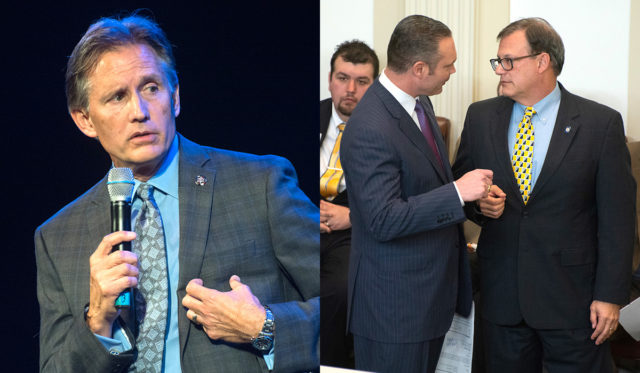

In the early months of 2021, then-Attorney General Mike Hunter was delivering separate messages to a pair of prominent elected officials about then-House Speaker Pro Tempore Terry O’Donnell, with whom he had feuded on the topic of opioid lawsuits.
Hunter repeatedly told Oklahoma County District Attorney David Prater that he believed O’Donnell (R-Catoosa) should be criminally investigated for authoring a 2019 bill that made it legal for his wife to be appointed as a state tag agent. Hunter said he “had a conflict” and could not investigate O’Donnell himself, according to Prater, who said the nature of Hunter’s “conflict” was unclear to him then.
Around the same time, House Speaker Charles McCall — one of O’Donnell’s closest friends in the Legislature — says Hunter asked him to stop one of O’Donnell’s bills: SB 984, which would institute a request for proposal process, transparency requirements and contingency fee caps on state contracts with private attorneys.
By the time 2021 came to a close, Prater had indicted O’Donnell and his wife on a slate of charges related to the tag agency legislation, and SB 984 had stalled in the House, despite passing 38-6 in the Senate and having support from the State Chamber of Oklahoma and influential conservative groups.
The extent to which Hunter’s two efforts had a connection could become a question for Prater’s ongoing Oklahoma County grand jury, which has continued to examine legislative activities in the months since it indicted O’Donnell and his wife, Theresa.
Prater confirmed to NonDoc that a third party recently contacted him to report that McCall and O’Donnell told him Hunter had threatened to prosecute O’Donnell for the tag agency bill if O’Donnell’s legislation on attorney contracts moved forward.
Through a spokesman, McCall (R-Atoka) confirmed that Hunter asked him to stop O’Donnell’s SB 984 in 2021, but he said Hunter — who resigned unexpectedly May 26 — never mentioned a criminal investigation of O’Donnell.
“In conversations with the speaker directly and separately with the speaker’s staff and (the) attorney general’s staff, the former attorney general asked if the bill could be delayed so he could help work on the bill in the interim to accomplish its goals on contingency fees while maintaining his office’s ability to pursue large civil cases,” John Estus, McCall’s spokesman, said in a statement. “The investigation was never discussed in those or any other conversations between the two offices, and the bill remains active this session.”
Prater said he contacted McCall’s attorney after receiving the allegation against Hunter.
“Regarding the former attorney general requesting of the speaker of the House that the bill be killed or else Terry O’Donnell would be indicted, I was told that it had occurred,” Prater said. “I have not been able to confirm it even after receiving a statement from the speaker of the House’s office.”
Prater said McCall “expressly denied that it had occurred.”
Mike Hunter received criticism for Purdue settlement
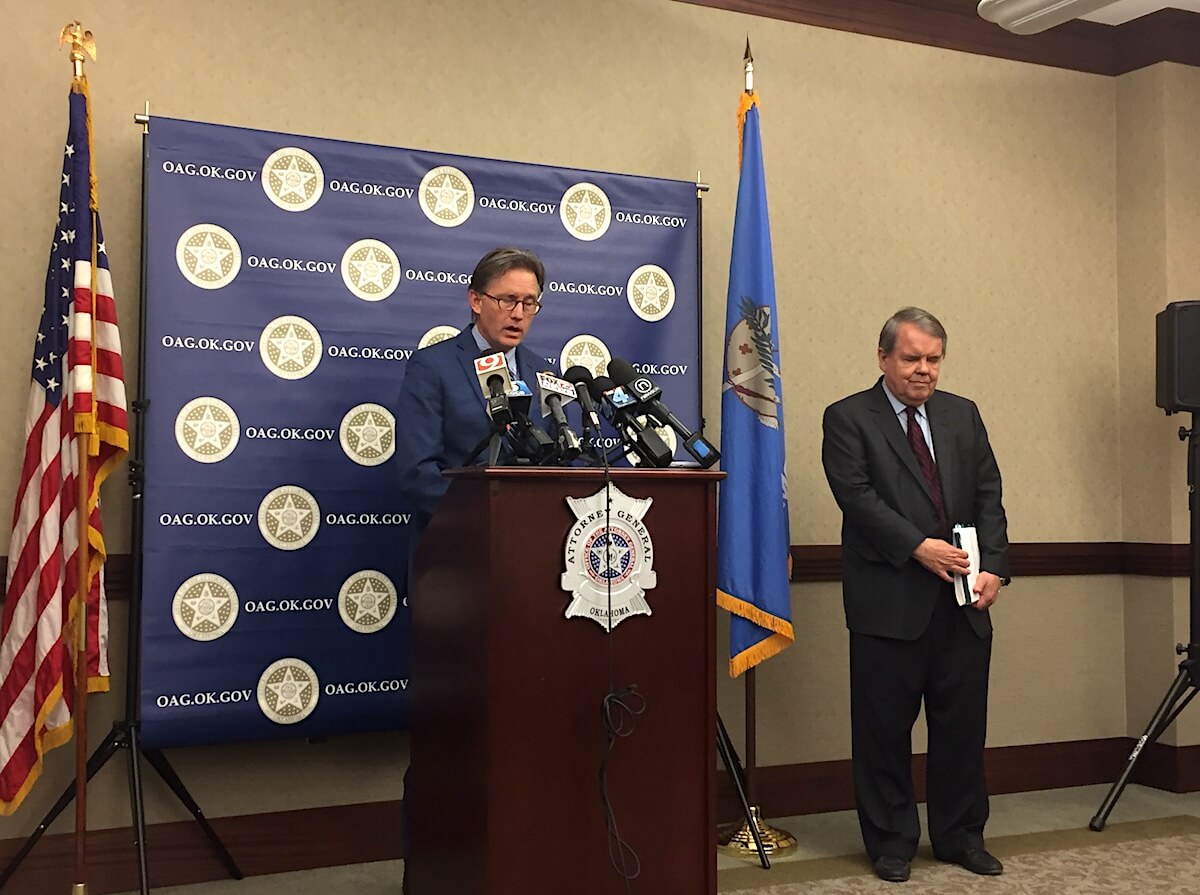
In 2021, as the April 8 deadline for SB 984 to be heard in a House committee approached, senators and lobbyists who supported the proposed reform felt like it had momentum.
The bill’s principal author, Sen. Kim David (R-Porter), was the Senate floor leader at the time, and O’Donnell was the second-ranking House member, behind only McCall, with whom he shared an OKC apartment during session.
Those who supported SB 984 believed Hunter’s own actions as attorney general highlighted the need for reform. Some lawmakers and other lawyers had criticized how Hunter handled his lawsuits against opioid manufacturers.
Beyond their invalidated decision to try to apply the public nuisance doctrine to Johnson & Johnson’s production and marketing of opioids, Hunter and his team of contracted attorneys had reached a controversial 2019 settlement with Purdue Pharma. The settlement, which Hunter and his attorneys reached while most states were banding together for their own litigation against Purdue, dedicated most of Oklahoma’s proceeds ($177.5 million) to a new foundation supporting Oklahoma State University research and treatment efforts.
Per their contracts, the influential private law firms Hunter had hired received $55.5 million from the Purdue settlement, which was divided among Whitten Burrage ($18.3 million), Nix Patterson ($31.6 million) and Glenn Coffee and Associates ($5.6 million).
In August 2019, OSU Medicine announced a research collaboration with Purdue Pharma involving “certain intellectual property,” such as “research molecules” and “associated data” related to opioid addiction. Another $24 million worth of opioid replacement medication was received in the settlement. Only $12.5 million was dedicated to support the efforts of Oklahoma cities and counties to respond to the opioid epidemic.
O’Donnell became one of the most vocal critics of the Purdue Pharma settlement, and he passed legislation in 2019 strengthening a state law he said Hunter had broken by directing the money to the new foundation.
In 2020, O’Donnell and David teamed up to run a pair of identical bills that proposed the transparency and contingency caps on law firm contracts: SB 1820 and HB 3390. The bills advanced initially out of their chambers of origin, although the House bill had its title struck to guarantee the House would have another chance to review it.
The pandemic-shortened 2020 legislative session left a lot of complicated policy proposals unheard, but David said she asked her House counterparts about her version of the bill to no avail.
“I didn’t get a straight answer. I was just told it wasn’t going to run in 2020,” David said. “I was told by House leadership, ‘We would rather the bill not advance this year. We will look at it next year.’ I was not given a specific reason why.”
Estus, the spokesman for McCall, said conversations between Hunter and McCall on the attorney contracting legislation only occurred in 2021, not in 2020.
‘I literally have no idea what happened’
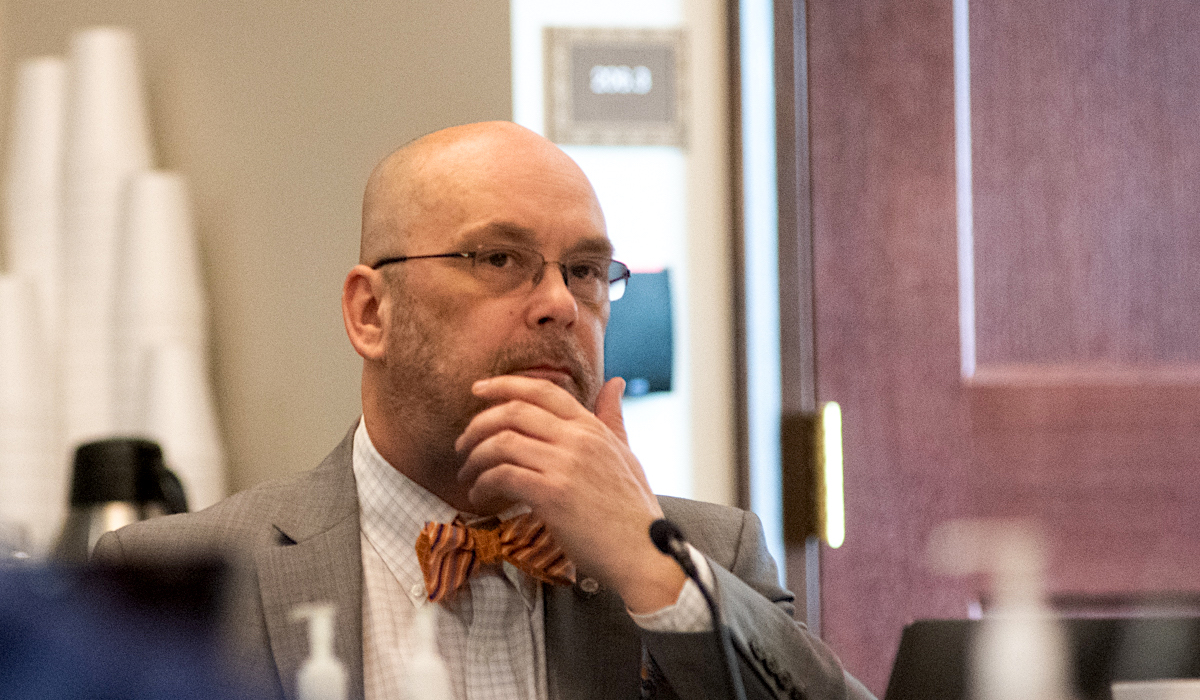
With the 2020 session truncated owing to COVID-19, David proposed the law firm contracting reform again in 2021 as SB 984, and O’Donnell signed on as House author.
According to legislative records, SB 984 passed the Senate easily and appeared on the House Rules Committee agenda for an April 6 meeting. But SB 984 and two other O’Donnell bills — SB 643 and SB 946 — were moved to the committee’s next meeting on April 8, the final day for Senate bills to pass a House committee. While the other two bills passed the House Rules Committee that day, SB 984 did not receive a hearing.
Asked on March 15 of this year why SB 984 did not receive a committee hearing in 2021, O’Donnell said House Rules Committee Chairman Mike Osburn made the decision.
“I don’t know. The chairman just didn’t want to give it a hearing,” O’Donnell said. “He didn’t (hear it). I assume that he didn’t want to.”
Asked if he had requested that Osburn allow the bill to be heard, O’Donnell replied, “We had some discussions on it.”
“You’d have to ask him what his decision-making process was,” O’Donnell said. “That was not told to me.”
Also asked about SB 984 on March 15, Osburn said he could not remember why the bill did not receive a hearing in his committee last year, despite it appearing on two meeting agendas.
“As a general practice, the only requests I grant come directly from the bill authors,” said Osburn (R-Edmond). “That bill was among hundreds of bills before the Rules Committee last year, and given the volume of bills the committee heard and the time lapsed since then, I truly cannot recall with 100 percent accuracy who requested what of me on each bill, including that one.”
Osburn said the fact SB 984 appeared on an agenda indicates he was not the person who stopped it from being heard.
“If I had said, ‘I’m not going to grant it a hearing,’ it wouldn’t have ended up on the agenda,” Osburn said. “In this case, I literally have no idea what happened. There were requests, those agendas were long, there were a lot of bills that came through Rules, and there are a lot of bills that are assigned to Rules. Just one specific bill? I just honestly don’t remember.”
Asked how, as the second-ranking House member at the time, he lacked the ability to convince Osburn to hear SB 984, O’Donnell said Osburn had autonomy.
“You put people in leadership positions for a reason, and you really don’t try to undermine them,” O’Donnell said. “I don’t know what all was in his process. We didn’t really go into any detail on it. I had some other fish I was trying to fry.”
Asked if Hunter ever spoke with him about SB 984, O’Donnell said, “No.”
“That would be interesting,” O’Donnell said. “He never weighed in on it with me, but I don’t know.”
On April 6, hours before the publication of this story, Osburn said SB 984 would appear on the agenda for next week’s House Rules Committee.
“Yesterday, [Rep. Terry O’Donnell] contacted me by email and asked for that to be put on an agenda and be heard, and I will do so,” Osburn said.
The House Rules Committee is scheduled to meet at 1:30 p.m. Tuesday, April 12, likely in Room 206 of the Capitol.
‘No one would give me a straight answer’
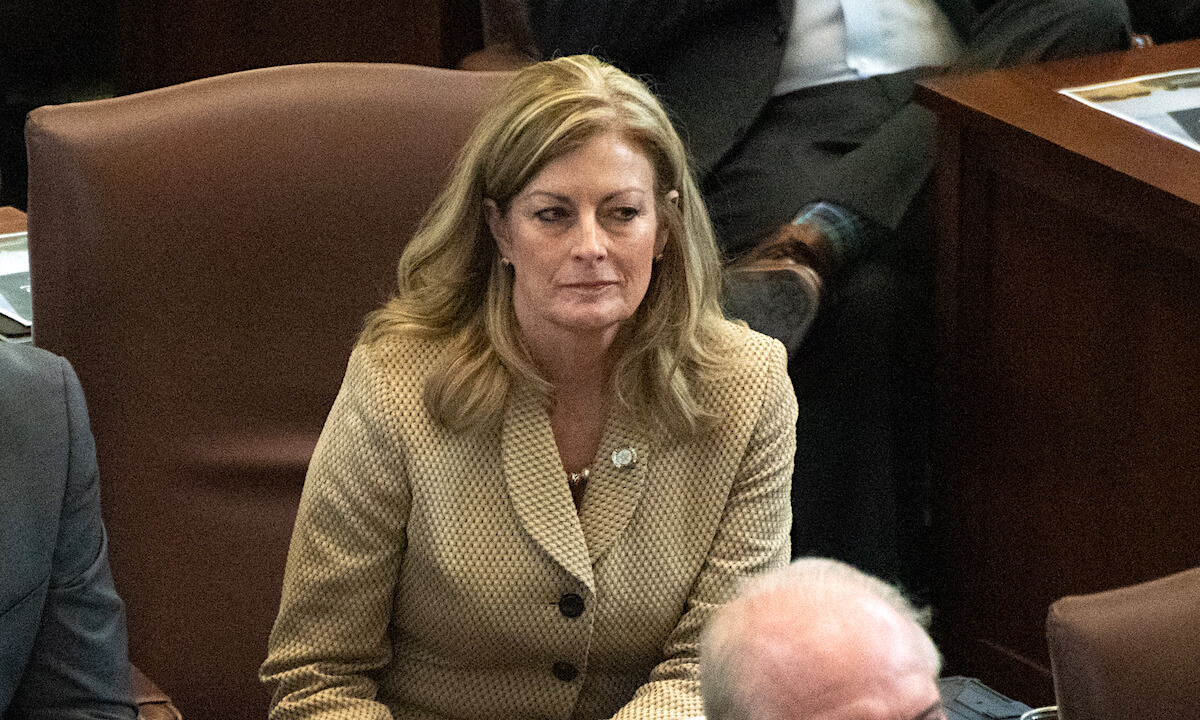
If the 2022 statements of McCall, O’Donnell and Osburn paint a confusing picture of what happened to SB 984 in 2021, top members of the State Senate were even more perplexed at the time.
David had authored the bill and had seen it advance easily from the Senate floor by a 38-6 vote. A member of leadership in her own chamber, she believed O’Donnell had the influence to get the bill a hearing in a House committee.
“Rep. O’Donnell was in support of the bill, and my understanding was he was always in support of the bill,” David said. “We had met on the bill several times, and we had gone back and forth making sure we had the right language.”
But when SB 984 reached the House, it was assigned to the Rules Committee and did not receive a hearing.
As the April 8 deadline approached and passed, David followed up with her House counterparts.
“When I was told that the bill was not going to be heard, no one would give me a straight answer as to why it wouldn’t be heard,” David said. “There was a reason behind it, and the reason why was not articulated to me. But it was definitely told to me that it was not going to be heard.”
RELATED
Prater outlines investigation as indicted O’Donnell blames ‘woke left,’ hints at Hunter history by Tres Savage
Although McCall’s spokesman said McCall decided against hearing the bill owing to Hunter’s request to work on language, David said that explanation was never relayed to her.
“I don’t know what the reason was, but it is concerning to me that the bill was held up and has been held up without good cause every year,” David said. “No good cause was given to me.”
Another strong supporter of regulating state contracts with private law firms, Sen. Julie Daniels (R-Bartlesville), also said she never heard of a proposal to delay the bill for further stakeholder conversations over the interim.
“If somebody was going to get together in the interim and work on it, no one spoke to me about participating in that,” said Daniels, chairwoman of the Senate Judiciary Committee. “No one ever spoke to me about any of that, if that happened.”
State Chamber of Oklahoma President Chad Warmington said Hunter opposed the law firm contract transparency proposal in 2020 and 2021. In early 2020, as Warmington began his presidency at the business advocacy organization, Hunter requested a meeting.
“AG Hunter made it clear he was not happy with the legislation. Attempts were made by his office to negotiate but fell short. At best they just codified his office’s current practices without providing any real protections for the public. The pandemic hit and the bill was put on hold,” Warmington said. “The bill was refiled in 2021. AG Hunter’s office remained mostly silent on the issue. It passed the Senate. It was scheduled for a hearing in House Rules and had the votes to pass but was unexpectedly laid over. It was our understanding the bill was laid over at the direction of House leadership after AG Hunter had requested it not be heard.”
Amy Kjose, a lobbyist who has supported law firm contracting reform for several years, said she did not want to discuss the matter at length, but she said she was never made aware of any substantive conversations on the issue during the interim between the 2021 and 2022 sessions.
“This is good policy that a lot of other states have adopted, and we hope it can make progress in the future,” Kjose said. “It has continually been unclear as to why this issue has failed to advance in recent years.”
‘I wasn’t trying to run around and kill it’
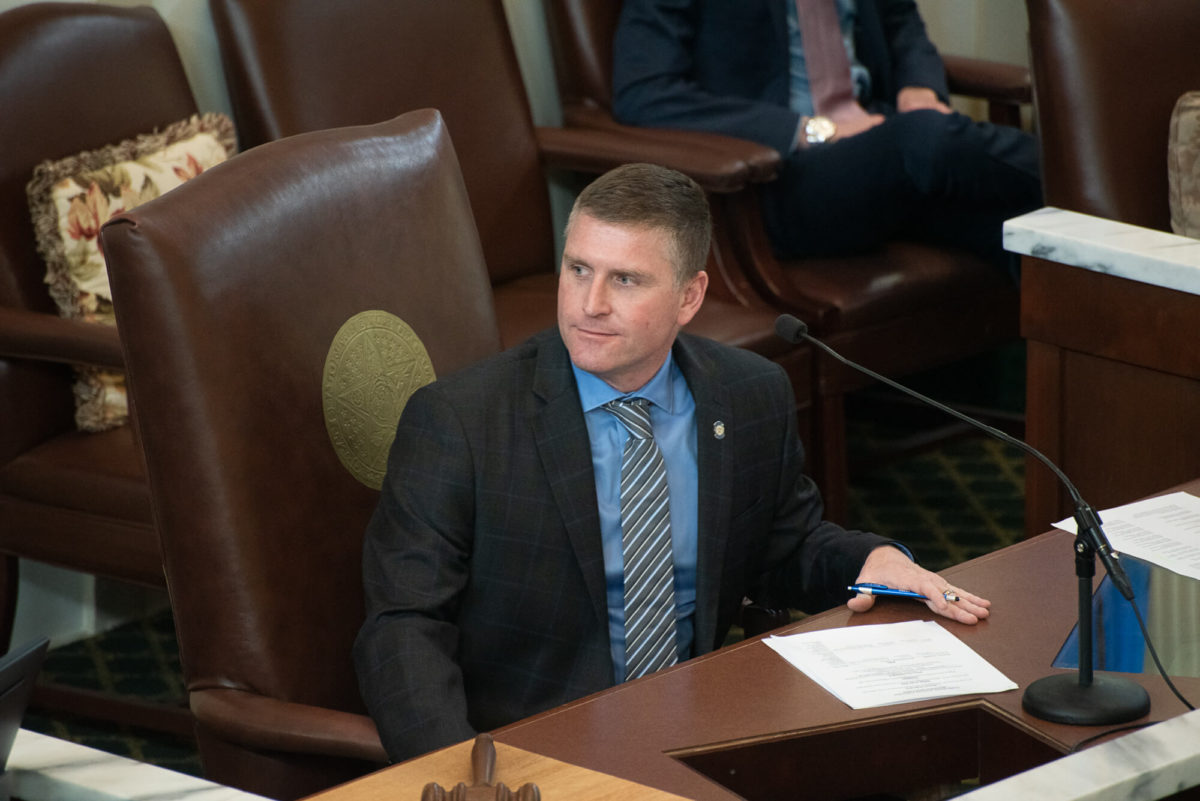
Exactly what happened to SB 984 last year remains unclear. The bill can remain a live round in the House this year if it is heard Tuesday in House Rules before Thursday’s committee deadline.
Earlier this session, House Civil Judiciary Chairman Chris Kannady (R-OKC) granted a hearing to HB 3941 as a less-stringent alternative that lacks several requirements of SB 984. While he transferred HB 3941 to House Civil Judiciary Chairman Bob Ed Culver (R-Tahlequah), Kannady is arguably the Legislature’s most influential attorney and is known for orchestrating complicated negotiations.
One might surmise that Kannady, a powerful political ally of Mike Hunter, worked against SB 984 last year and helped Hunter in his request that McCall delay it. But Kannady says he did not.
“No, I wasn’t trying to run around and kill it. I was just going to vote against it,” Kannady said of SB 984. “I didn’t even alert anybody that I was even garnering votes to try to kill it in committee if it came up. I was just against the bill.”
Kannady said he briefly discussed SB 984 with Hunter, but he said their talk was limited.
“I had conversations with him about the bill, but he didn’t really — he wasn’t talking to me like he wanted the bill killed, because he already knew that my position basically was the same as his,” Kannady recalled. “I don’t know if he talked to other members about the bill. He could have.”
As it turns out, Hunter did talk to McCall and House staff. However Hunter made his case proved effective.
First elected in 2014, Kannady said many attorneys have disagreed with the reforms proposed in SB 984 owing to the risk associated with contingency cases, which typically involve law firms only receiving significant payment if they achieve a favorable settlement or verdict for the state. Historically, Oklahoma attorney generals, plaintiff attorney groups and higher education institutions have opposed various iterations of the bill.
“There have been versions of that bill ever since I’ve been in the Legislature,” Kannady said. “The problem I have with the concept is when you take on these contingency cases, you do it at full risk to you as the attorney. You cover all the expenses, all of your time, and you may lose it all. So to do a contingency contract and the attorney take all of the risk, of course it’s a risk-reward (situation). Firms are not going to take on these big cases if you limit their ability to recover their costs and their time.”
Kannady said he did not know the nature of Hunter’s personal opposition to SB 984.
“You’d have to ask him, but I would speculate it was because of his ability to contract with outside attorneys through contingency contracts — which was at no cost to the state — that he was able to bring in the opioids money,” Kannady said.
Hunter did not return a phone call seeking comment about SB 984.
“I agreed with his perspective, (which was) to allow us to go after people who have done wrongs to the state,” Kannady said. “And if you’re litigating cases for 4 million people, they are expensive cases. And in the case of the opioids litigation, which is still ongoing, it shows that we benefited. So, I guess it’s the ‘If it’s not broke, don’t fix it’ mentality.”
Currently, Title 74, Section 20i of state statue outlines how law firms can register to be considered for state contracts. The Attorney General’s Office accepts applications through a brief online form.
Follow @NonDocMedia on:
HB 3941 lacked several provisions of SB 984
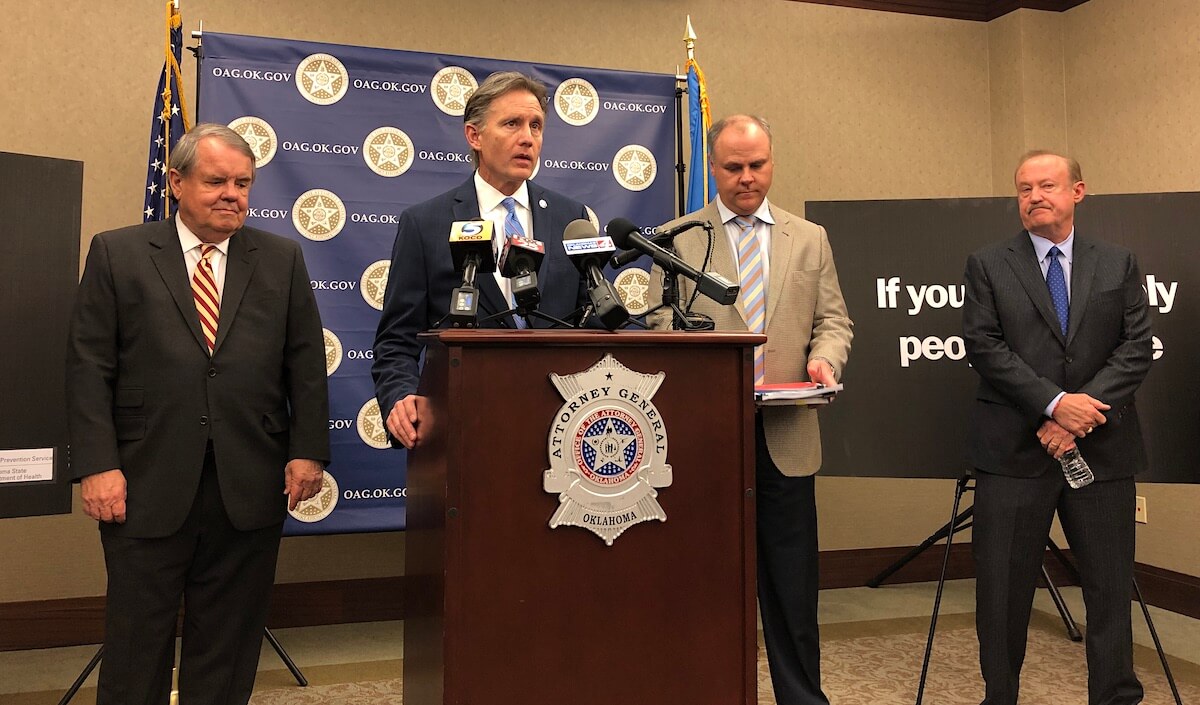
David, O’Donnell, Daniels, Warmington and others believe the system of state agencies — particularly the Attorney General’s Office — contracting with private law firms is broken and does need fixing, or at least transparency. Lobbyists who have worked on the issue for years believed the Culver and Kannady proposal in this year’s HB 3941 lacked the teeth found in SB 984.
While HB 3941 featured most of the same contingency fee scale as SB 984, it did not include SB 984’s language requiring:
- A state agency to initiate a request for proposal process for any private attorney contract that is anticipated to cost at least $1 million;
- A $50 million overall cap on contingency fee payments to all retained private attorneys in any contingency fee contract;
- That copies of any executed contingency fee contract with a private attorney be posted on the Attorney General’s Office website for public inspection within five days;
- That any payment of contingency fees shall be posted on the Attorney General’s Office website within 15 days after the payment;
- Disclosure and online posting of the past and present relationship, if any, between the private attorney or law firm and the state agency making the contract;
- Disclosure and online posting of other details about the state agency’s reasoning for selecting the private attorney or firm.
HB 3941 advanced 10-0 from Kannady’s and Culver’s committee, but the bill did not receive a House floor hearing prior to last month’s deadline.
Warmington said the language in SB 984 would provide Oklahomans with more transparency and better accountability when private law firms are hired for litigation on behalf of the state.
“The legislation isn’t about preventing the state from bringing these types of suits. It is about better overseeing the state’s interest in litigation and preserving more money from awards for taxpayers,” Warmington said. “If the state is going to place its police power in the hands of outside counsel, it should be for the benefit of the public — not for the benefit of plaintiff’s attorneys making a windfall using the legitimacy of the state as a sword and shield.”
Legislative liaisons for new Attorney General John O’Connor, who was appointed by Stitt in July to fill the remainder of Hunter’s term, had requested HB 3941 as a way to have involvement in negotiations on the topic this session.
“Versions of this reform are proposed every session, and our office wanted to be proactive and have a vehicle to be engaged in the policy discussion,” said Madelyn Hague, O’Connor’s spokeswoman.















